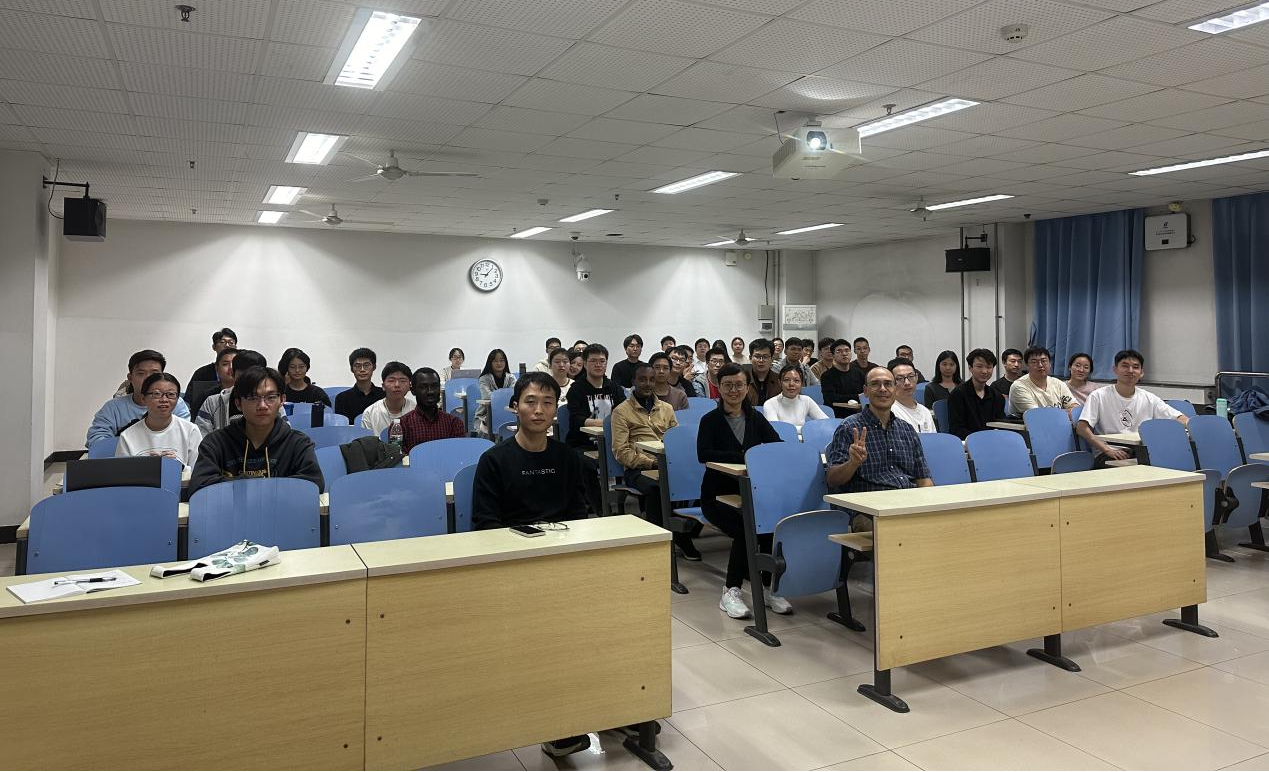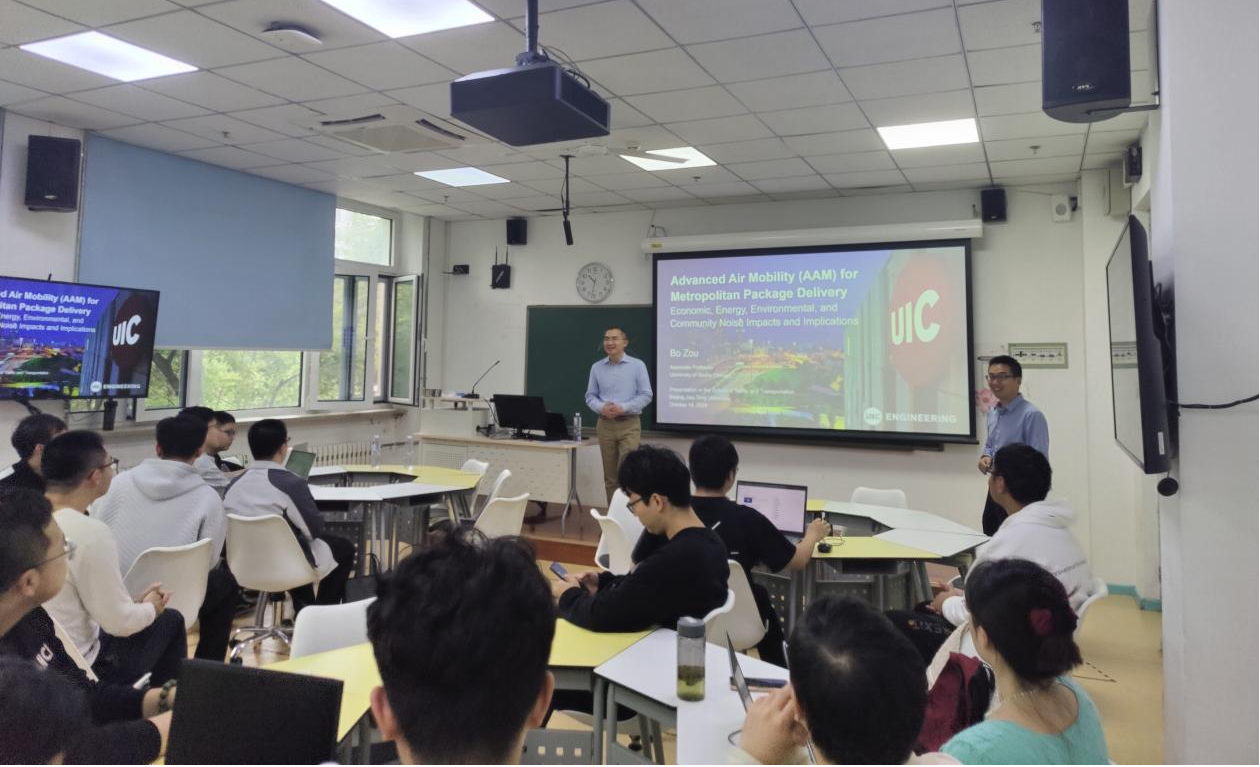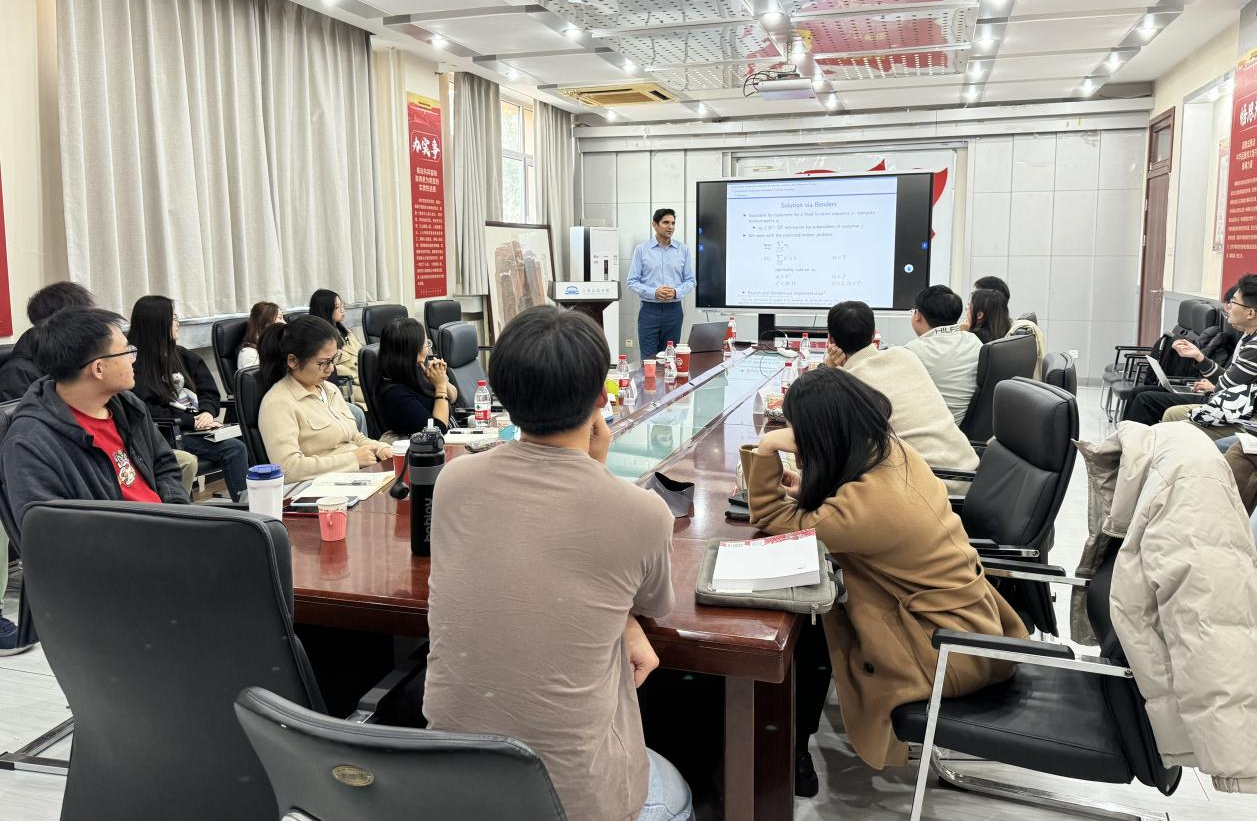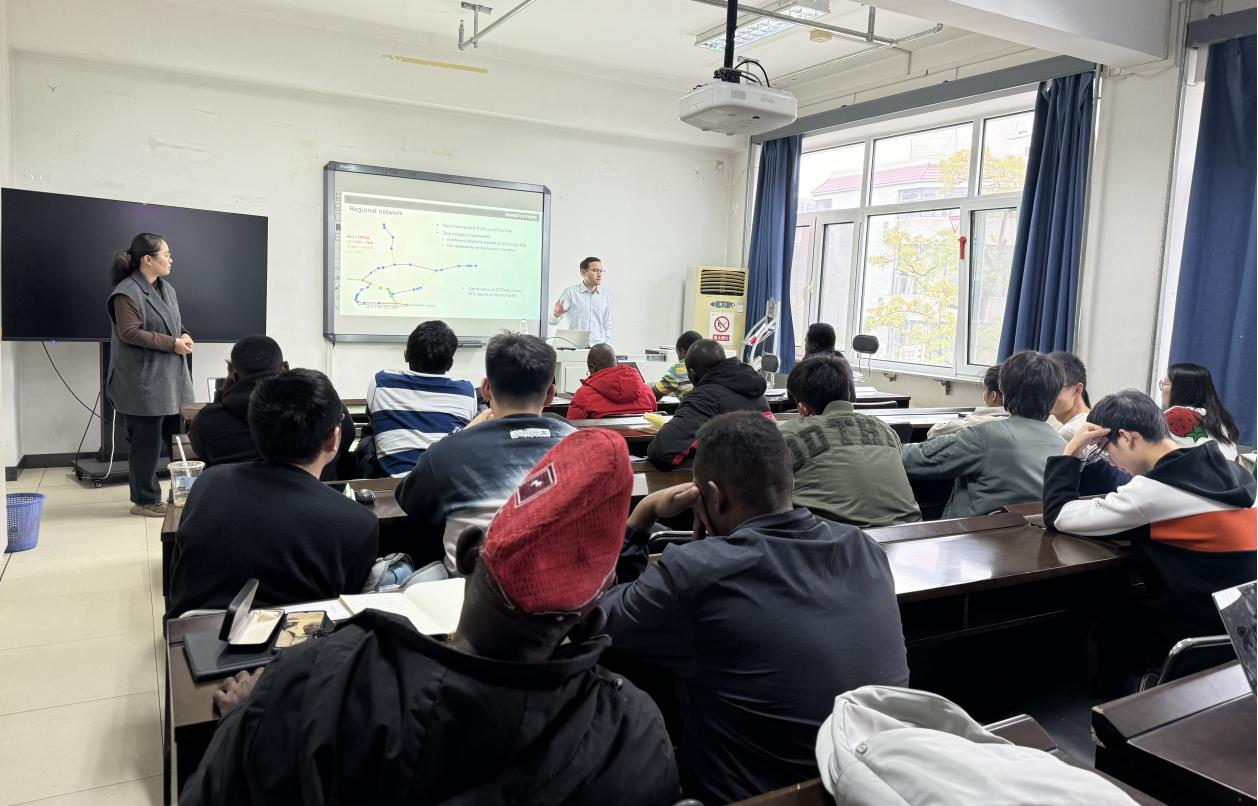×
2024年10月14日,交通运输学院邀请罗马第三大学Andrea D’Ariano教授、美国伊利诺伊大学芝加哥分校邹博副教授面向全院师生进行两场国际学术讲座。
Seminar 1:A Bilevel Rescheduling Framework for Optimal Inter-Area Train Coordination
Railway dispatchers reschedule trains in real-time in order to limit the propagation of disturbances and to regulate traffic in their respective dispatching areas by minimizing the deviation from the off-line timetable. However, the decisions taken in one area may influence the quality and even the feasibility of train schedules in the other areas. Regional control centers coordinate the dispatchers’ work for multiple areas in order to regulate traffic at the global level and to avoid situations of global infeasibility. Differently from the dispatcher problem, the coordination activity of regional control centers is still underinvestigated, even if this activity is a key factor for effective traffic management.
This talk investigates the problem of coordinating several dispatchers with the objective of driving their behavior towards globally optimal solutions. With our model, a coordinator may impose constraints at the border of each dispatching area. Each dispatcher must then schedule trains in its area by producing a locally feasible solution compliant with the border constraints imposed by the coordinator. The problem faced by the coordinator is therefore a bilevel programming problem in which the variables controlled by the coordinator are the border constraints. We demonstrate that the coordinator problem can be solved to optimality with a branch and bound procedure. The coordination algorithm has been tested on a large real railway network in the Netherlands with busy traffic conditions. Our experimental results show that a proven optimal solution is frequently found for various network divisions within computation times compatible with real-time operations.

Seminar 2:Advanced Air Mobility (AAM) for Metropolitan Package Delivery: Economic, Energy, Climate, and Community Noise Impacts and Implications
The rapid development of Advanced Air Mobility (AAM) in recent years suggests a potential to use electric vertical takeoff and landing aircraft (eVTOLs) for package delivery in metropolitan areas. While eVTOL manufacturers and logistics service providers have been actively prototyping and exploring the potential of eVTOLs in delivery businesses, a system thinking about the suitability and ways to operate an eVTOL-based package delivery system remains scarce. In the first part of this talk, I will present our recent exploration of the economic, energy, and climate impacts of using eVTOLs for package delivery. As eVTOLs cannot take off/land in front of customer doorsteps, a two-leg system design is proposed and formulated as an integer programming model. We specify plausible eVTOL and ground vehicle types, their cost economics, and their energy use and CO2 emission characteristics. We implement the model in the Chicago metro region. We find that the attractiveness of eVTOL-based package delivery depends critically on eVTOL and ground vehicle choices and key system inputs. Apart from the economic, energy, and climate impacts of eVTOL-based delivery, community noise is another key concern which affects public acceptance. In the second part of the talk, I will present an operational planning framework for eVTOL-based package delivery that is both economically efficient and community friendly. We propose a method to quantify the community noise impact of an eVTOL operation, by introducing a measure of “population exposure”. Building on the measure, a bi-objective integer programming model is developed which simultaneously optimizes eVTOL shipping cost and community noise impact. The optimization accounts for many constraints that may arise from eVTOL-based package delivery including maximum distance for local delivery, package delivery time window, and eVTOL fleet size and carrying capacity. A customized solution algorithm is devised. The model and the algorithm are implemented in a case study in the Chicago metro region. Numerical results reveal the cost-noise tradeoff and other operational insights about eVTOL-based package delivery.

2024年10月28日,学院邀请加拿大魁北克大学蒙特利尔分校Sanjay Dominik Jena副教授在我校第八教学楼8415会议室面向全院师生进行学术讲座。
Seminar 3:Cumulative Customer Demand in Facility Location and Network Design
Dynamic Facility Location and Network Design are a popular class of combinatorial optimization problems that provide the infrastructure necessary to satisfy customer demand. They have been applied to a large variety of planning contexts, where customer demand may have different interpretations, such as consumer goods, transportation services, or medical relief items. Existing literature commonly assumes that customer demand quantities are defined independently for each time-period. In many planning contexts,however,unmet demand carries over to future time periods. Demand that is unmet for some time periods may therefore affect decisions of subsequent time periods.
In this talk, we discuss the implications of cumulative customer demand in two representative planning contexts for multi-period network design and facility location:humanitarian supply chains, where unmet demand for relief aid may result in a spread of disease, and therefore increases future demand; and temporary facility location, such as pop-up stores, where customer demand for necessary items gradually builds up until it is satisfied by a nearby facility. We discuss two principal types of cumulative demand propagation and their respective modeling in mathematical programming formulations. We show how a failure of modeling such behavior may result in severe economic underperformance, how the corresponding models can be modeled and solved efficiently, and how different problem characteristics impact the computational complexity.

2024年10月30日、31日,学院邀请了荷兰屯特大学学者Alessio Trivella在我校第八教学楼3层学术会议室面向全院师生进行2场学术讲座。
Seminar 4:Improving a railway timetable by implementing technologies for increased automation
Seminar 5:Improving energy efficiency in railway traffic and speed profiles under uncertainty
